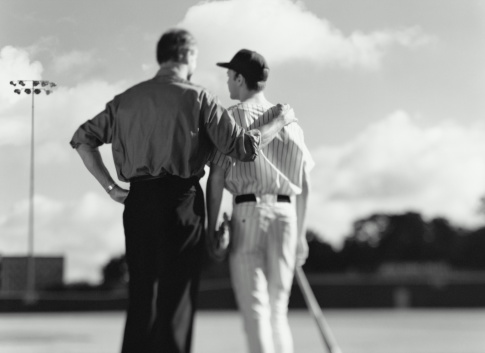Special Intangible Traits For A Good Baseball Coach
Good baseball coaches are people who not only love the game, but know all of its fascinating angles. They understand and love baseball so much, that they’ve decided to coach it. If you’re looking for a good coach, ask around, and see if you can watch the coach in action during drills and also during games. Aspiring coaches can do this as well. Observe how players, parents, and officials respond to various coaches and how they encourage the team. Observing can give you some ideas about how you’ll run your team.
Besides figuring out how to win games, drills, practice, contracts, scheduling, and organization are all hallmarks of success in coaching baseball. We know about these things and read about them ad nauseam in books, blogs, and the like. But what are some of the special traits good coaches have that aren’t so tangible? How does a coach morph a bunch of messy, clumsy strangers into a tightly bonded fellowship of courteous, orderly, hardworking, efficient and skilled baseball players?
1.) Leading is Give and Take
Extensive knowledge of the game is imperative for any coach worth their salt. They must be able to explain basic rules to rookies, while also being able to provide more complex information to more advanced players. Good coaches aren’t dictators, and players aren’t mindless robots. Every coach must be willing to learn just as they are willing to teach. Questions should be encouraged, players should feel that they can share ideas and be a part of game strategy. It’s a cyclical relationship, both sides giving, learning, and reaching for shared excellence. The players feed off of the coach’s ability to provide them with knowledge and training, the coach is fulfilled by watching players strive and succeed.
2.) Coach from the Inside Out
The coach knows the team. They keep an eye out for disagreements, bullying, or injuries, a player who has had a really crappy day, celebrating a team member’s birthday, asking them about the new puppy, or commending a player on their good grades. All these things are ways for the coach to demonstrate care and consideration for all players together and individually. The coach maintains the life force of the team, showing each player that they are an integral part of a whole, everyone on board is important and awesome. When a team is provided with this support, it ignites the fire within each player to get out there on the field, do drills, play ball, and have fun.
3.) Sportsmanship is Swanky
The vision for every team is to produce the highest and best outcome of any game… which means they want to WIN. It doesn’t always work out that way, however, and a coach who can show that the journey is as important as the outcome, who knows how to show grace and poise after losing a game, is the real winner. Nothing is more unattractive than sour grapes, whining, and pouty lips. Victory, trophies, and banners will come and go, but friendship and life skills are forever. A great coach can take a losing team and still offer inspiration and hope, and have them chomping at the bit to try again next time.
4.) Feet on the Ground
A coach knows that instinctively, leading is giving, it means that compassion, trust, structure, boundaries, and time investment are all part of making good players and great people. A coach can’t tell players that hard work is worth it if the coach doesn’t show that same effort. A coach can’t let a crazy parent in the stands shout obscene things at the opposing team if the coach requires good sportsmanship from all players. Talk is cheap, actions speak louder than words, and the road to hell is paved with good intentions. Keeping promises, taking the time to build and maintain good relationships, and modeling exemplary behavior inspires others to do the same.
5.) Baseball is Crazy
Good coaches know that no matter how many play books, plans, line ups and strategies exist: chaos is always present and waiting. The sooner a coach can embrace uncertainty, the sooner a coach can really start to lead. The new helmets were delivered to a field 50 miles away, the umpire had a flat on the way to the game, your shortstop broke a foot doing cartwheels at home on their patio, the field has an insurmountable abundance of neck-breaking gopher holes: all of these situations require acceptance and management. All of these situations are a pain in the butt! But that’s life, and baseball is the greatest metaphor for life there is. Good coaches eat uncertainty for breakfast, they break through the malarkey and know that the luckiest people in the world get to teach and play the sport they love, gopher holes and all.

